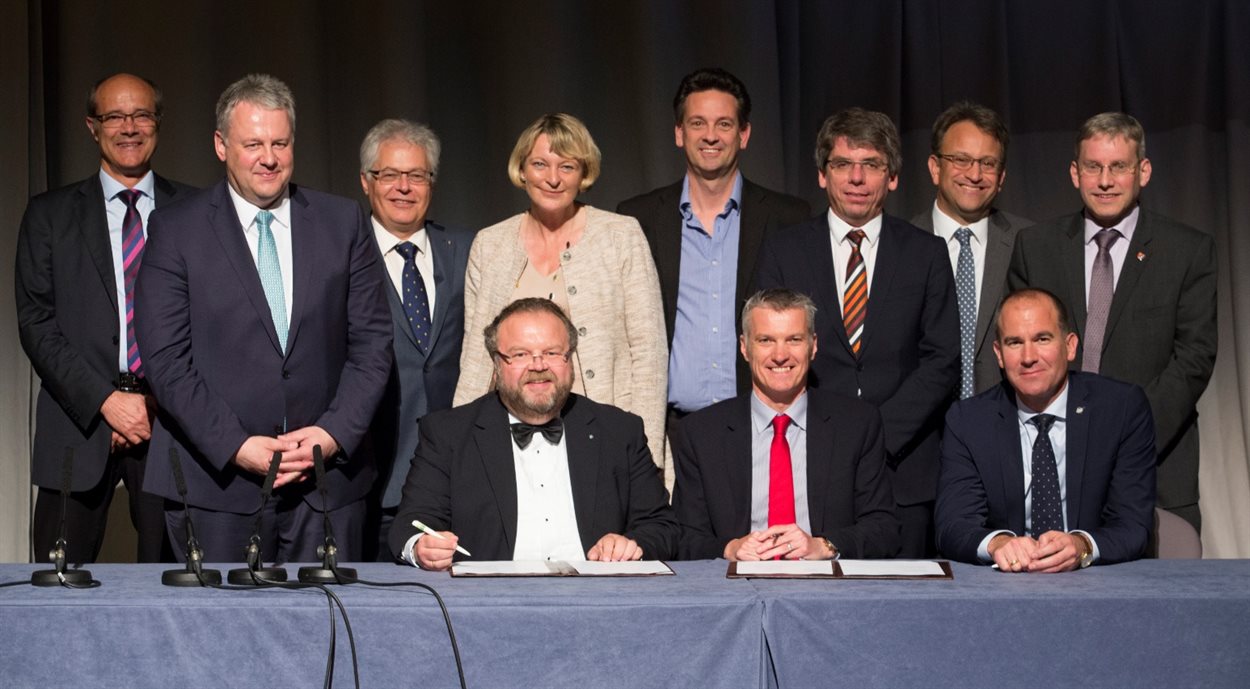The Birmingham Energy Institute and Fraunhofer UMSICHT have combined academic expertise with industrial technology translation capability to develop a Joint Research Platform that will deliver new approaches to energy and waste management. This collaboration, part of a major International Investment Initiative (i3), addresses the practical challenges that sit at the heart of the energy waste nexus, applying academic insight to accelerate innovation to the market place.
 With our global community consuming more energy than ever before, the demand for energy is rising. But this increasing demand is occurring at a time when climate change and the use of fossil fuels is a growing concern.
With our global community consuming more energy than ever before, the demand for energy is rising. But this increasing demand is occurring at a time when climate change and the use of fossil fuels is a growing concern.
The collaboration will initially focus on the new Thermo-Catalytic Reforming (TCR®) technology, developed by Professor Andreas Hornung, Chair in Bioenergy at the University of Birmingham, and Director of the Institute Branch, Sulzbach-Rosenberg, Fraunhofer UMSICHT.
The demonstrator for TCR® is based at Tyseley Energy Park in the city of Birmingham - a central hub for Energy Innovation as part of the Energy Capital vision for the West Midlands.
In the future, the collaboration will look to progress a chain of commercial-scale thermo-catalytic reforming plants around the city of Birmingham. This concept has been called the ‘Thermal Belt‘. If developed, the technology will have the potential to transform the way that we think about waste and energy, and start providing a solution to the growing demand for clean energy and fuels on a global scale.
A unique collaboration
In 2019, the group renewed the Joint Research Platform with plans to locate collaborative research in a new centre at the City's Tyseley Energy Park. Set to open in 2021, the Hub will link to the creation of a technology transfer centre in China in partnership with Jiangsu Industrial Technology Research Institute (JITRI), in Nanjing, and funded through Research England’s International Investment Initiative (I3) programme.
The Birmingham Energy Institute, Fraunhofer UMSICHT and JITRI recently announced their partnership in China to find global solutions for delivering recycling solutions and low-carbon clean energy and reducing the environmental impact of waste.
A five-year bridge connecting the sister cities of Birmingham and Nanjing with energy and raw materials experts in Germany will see researchers develop new technologies such as energy storage solutions – allowing renewable power to be available ‘on tap’ – as well as energy sources and biofuels created from waste.



Professor Andreas Hornung
Professor of Bioenergy
“The Joint Research Platform is a major step forward into a new era of transferring innovation into application. Guests from all over the world have been in Birmingham, celebrating this opportunity, including investors into technology from Brazil, Italy and Germany. We delivered something new to the great research portfolio at University of Birmingham, and to the means of the city to get solutions delivered for a green Birmingham.”